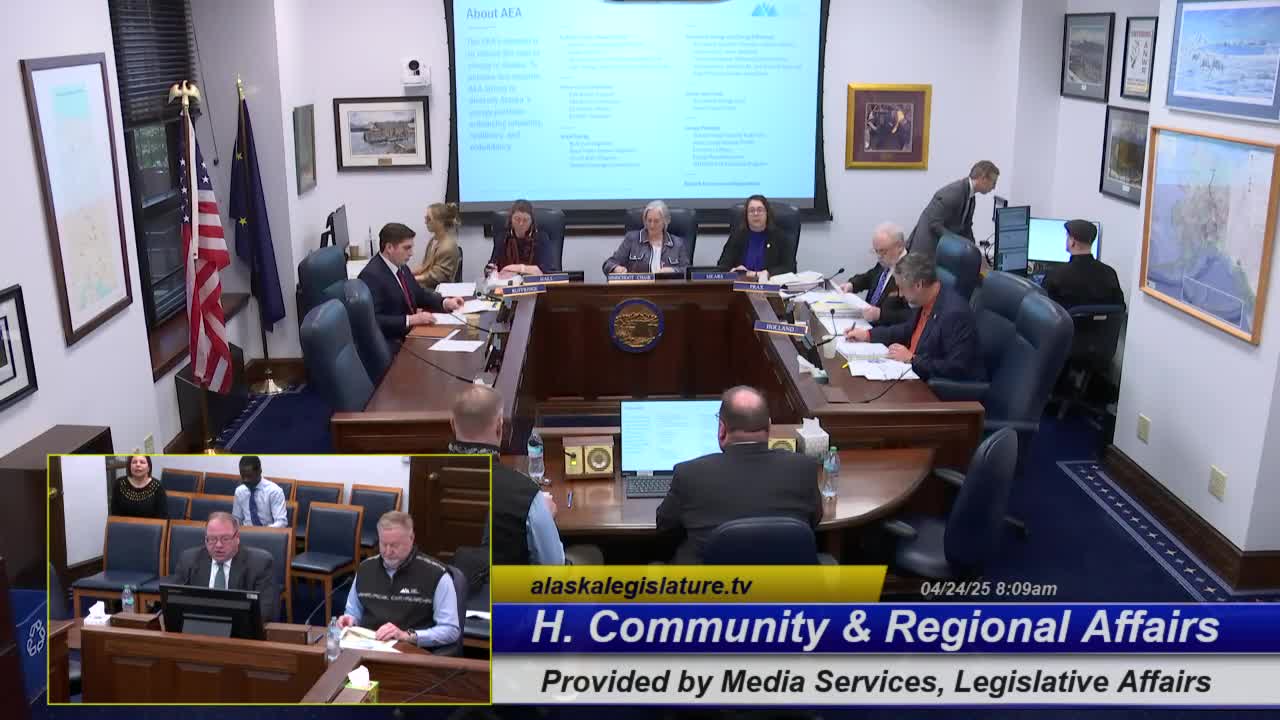Alaska Energy Authority outlines $48 million rural power cost equalization program
April 24, 2025 | 2025 Legislature Alaska, Alaska
Thanks to Scribe from Workplace AI , all articles about Alaska are free for you to enjoy throughout 2025!

This article was created by AI using a video recording of the meeting. It summarizes the key points discussed, but for full details and context, please refer to the video of the full meeting. Link to Full Meeting
A key focus of the discussion was the Power Cost Equalization (PCE) program, which allocates $48 million to support 82 electrical utilities and benefits approximately 82,000 Alaskans. This program is essential for maintaining affordable energy access in remote communities, where energy costs can be significantly higher than in urban areas.
The AEA outlined its various projects and investments, including the state's largest hydroelectric project at Bradley Lake and the development of a high voltage direct current (HVDC) line from Nikiski to Beluga, a project costing $130 million. The authority also emphasized its commitment to renewable energy sources, such as biomass, solar, and wind, alongside energy efficiency programs that include a $74 million rebate initiative for home energy improvements.
In addition to these projects, the AEA is actively involved in upgrading rural power systems, which includes emergency response efforts for power outages affecting numerous communities. The authority's circuit rider program provides technical assistance and training to local operators, ensuring that essential services remain operational even in challenging conditions.
The meeting also touched on the aging infrastructure of bulk fuel storage facilities, which are critical for heating and electricity in rural Alaska. The AEA's bulk fuel upgrade program aims to address deferred maintenance costs that exceed $1 billion, ensuring safe and efficient fuel storage.
Overall, the discussions underscored the AEA's pivotal role in supporting Alaska's energy needs, particularly in rural areas, and the ongoing efforts to enhance energy reliability and affordability across the state. The committee plans to continue reviewing the PCE program and other energy initiatives in future sessions.
Converted from 04/24/2025 08:00 AM House COMMUNITY & REGIONAL AFFAIRS meeting on April 24, 2025
Link to Full Meeting
Comments
View full meeting
This article is based on a recent meeting—watch the full video and explore the complete transcript for deeper insights into the discussion.
View full meeting


